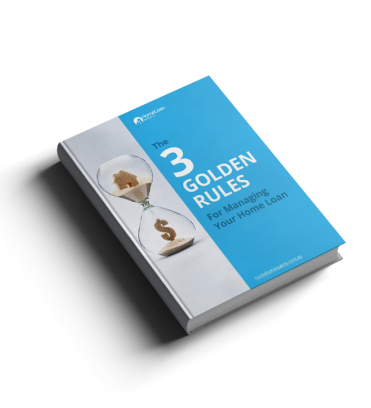Tap into the power of equity to invest in property
Equity is one of the most powerful tools you have to start building a solid property portfolio.
Many homeowners mistakenly believe that they have to pay off their home loan before they can start investing in property.
Even if you bought your home in the past year, you might already have enough equity to use as a deposit for your next purchase.
Want to leverage your home equity now?
Your equity is your untapped wealth. By unlocking it, you’re able to use it for the following:
- As a deposit: You can use equity in your property as a deposit against an investment loan. If you have enough equity, you can borrow 80% of the property value without using your own cash.
- To take out a line of credit: You can structure your home equity loan using a line of credit. Based on your equity, you will be approved with a certain amount of credit. You will only have to pay interest on the portion you’ve spent. You can also combine this with an offset account to reduce the interest on your loan.
- Deposit bonds: Instead of using equity as a cash deposit, you can use it as a deposit bond or guarantee. This is generally the case if you’re buying off-the-plan with a 12 to 24 month settlement. It also generates interest as it sits in a bank account while awaiting settlement.
- Renovations: If you don’t have enough equity to buy an investment property, you can instead use it to renovate your existing property. You can then turn your home into an investment and begin your investment journey.
We can help! Call us on 1300 889 743 or complete our free assessment form to discuss your investment plans with one of your expert mortgage brokers.
A Guide To Managing Your Home Loan
Now that you’ve started paying off your mortgage, how can you make sure you’re avoiding mortgage stress?
Download the pdf to discover ‘The 3 Golden Rules For Managing Your Home Loan’.
What is equity and how can you build it quickly?
Simply put, equity is the difference between the current value of your property and the amount you owe against it. For example, if your property is currently valued at $600,000 and your mortgage is now down to $400,000, you now have $200,000 in equity that you can potentially access.
Equity takes time to build but there are a few things you can do to ramp it up quickly.
You can do cosmetic renovations to significantly boost your equity.
A new kitchen or bathroom and a lick of paint could dramatically lift the value of your property. Just make sure that you plan and budget well to avoid overspending.
You can also look at making extra repayments to reduce your mortgage quickly. The more you pay, the more equity you build in your property.
If you’ve just settled on a home loan you may not have enough equity yet. However, if your home loan was for 80% Loan to Value Ratio (LVR) or less, and you’ve started making mortgage repayments, you will have access to some equity very soon.
Once you’ve accumulated sufficient equity, you may be able to use it for:
- Maintenance and renovations for your property.
- Buying an investment property or your second home.
- Other investments such as shares and managed funds.
- Improving your lifestyle such as buying a new car or going on a family vacation.
GET ENROLLED FOR THE
Home Buyers Program
Thinking of buying a home?
Learn how to buy a house and avoid costly mistakes in under 2 hours.
Learn more How can you access your hidden wealth?
If you’re planning to use equity to buy an investment property, you’ll need to get a property valuation report first. This is to find out how much equity you have in your home. If you’ve lived in your home for more than five years, you probably have considerable equity in it.
It’s important to note that when it comes to equity, there’s accessible equity and there’s useable equity.
Accessible equity is the amount you can potentially access. Using our previous example, if your home is currently valued at $600,000 and you have $400,000 outstanding mortgage on it, your accessible equity is $200,000.
However, the banks only lend to 80% of the current valuation less than the current mortgage. This is also known as your useable equity.
So the amount you can borrow against then becomes: $600,000 x 80% – $400,000 = $80,000
As you can see, it’s significantly lower than the $200,000 available equity, but it’s still a hefty amount that you can use to fund your deposit.
When assessing your application banks will take into account your income, the number of children you have, current debts and many other factors to determine the amount of equity they accept.
Typically, lenders can accept up to 80% of the equity on an existing property. If this amount can sum up to 20% of the value of the investment property then you can avoid paying Lenders Mortgage Insurance (LMI).
LMI is one-off fee that lenders generally charge if you borrow more than 80% LVR. It can amount to thousands of dollars so you’d be best to avoid it if you can.
We have mortgage brokers who specialise in investment loans and can get you an upfront property valuation for both your home as well as your investment property.
You can discuss your situation and loan needs with one of our credit specialists by calling us on 1300 889 743 or get a free quote within 24 hours by completing our free online assessment form today.
Beware of the traps when accessing your equity
Using the equity of your own home to buy an investment property carries some risks. If you don’t use your equity wisely, you could end up losing your home. Or worst, you could lose both your home and your investment property.
Here are some tips to help you maximise the power of your equity safely:
- Make sure you maintain a sufficient buffer. If you don’t have spare funds aside from the equity in your home, don’t use all of it to invest in property. This will help you prevent having to borrow money in the event of an emergency.
- Repay the home loan on your home as fast as possible before focusing on the investment. This way, you’ll have access to more equity and can use it if needed.
- Educate yourself about investing in property. It’s a huge financial commitment so ensure you pick a good property in a high growth area.
- Speak with a professional financial advisor to understand your options. They can help you understand how much equity you can access and if using equity to buy an investment property is a viable option for you.
Please note that the above must not be taken as financial advice. This is general information only and you should seek out relevant and independent professional advice before making a financial decision.











